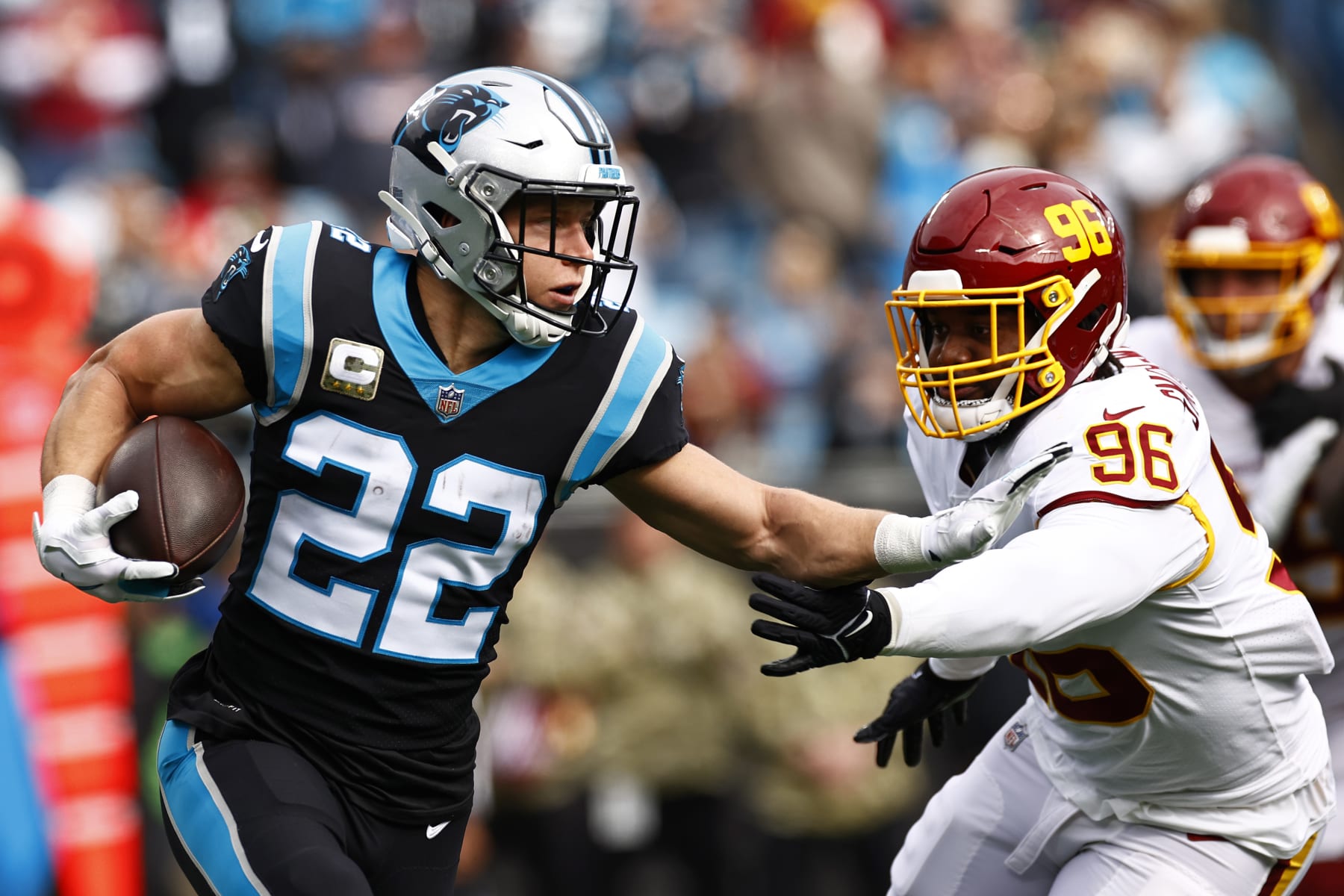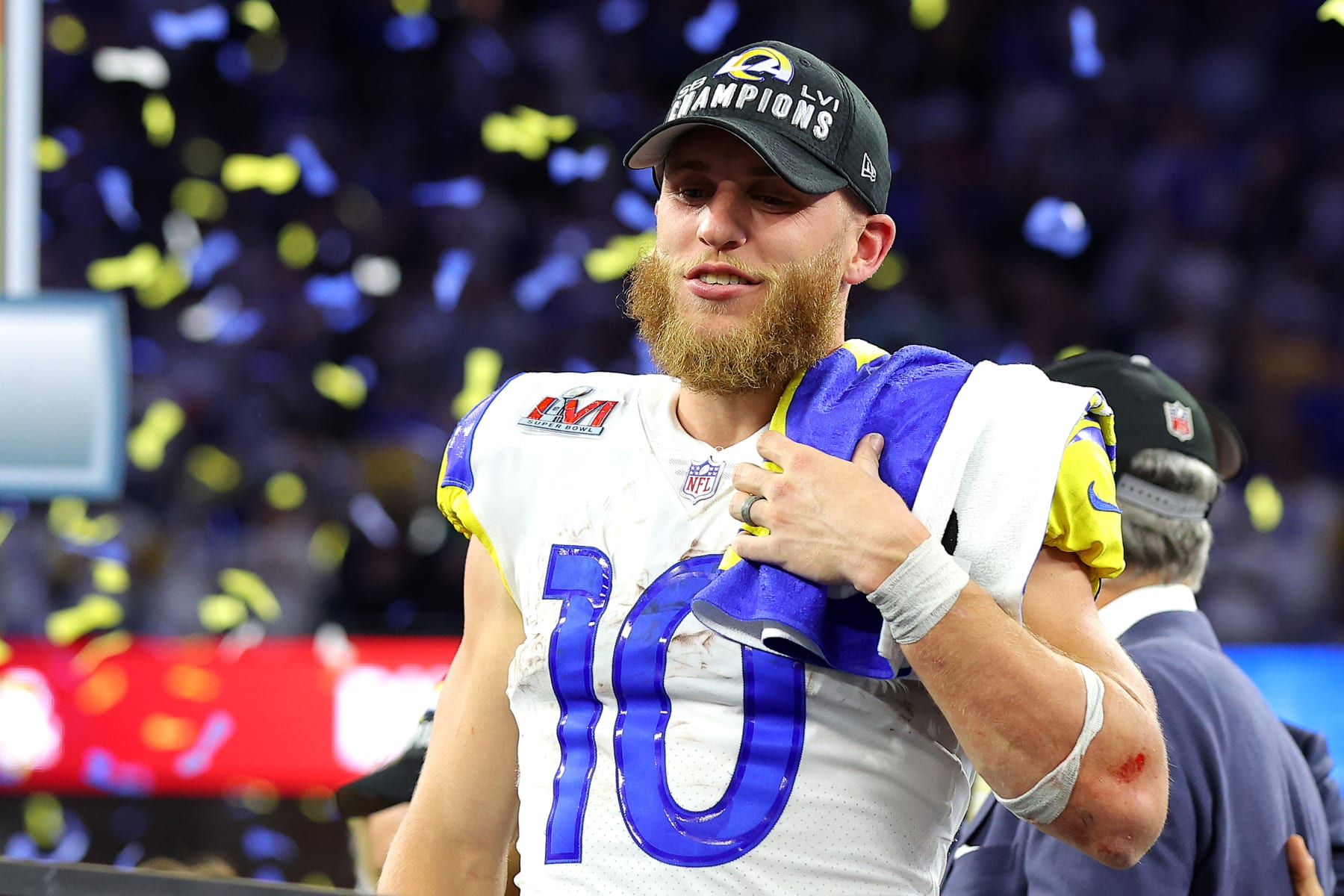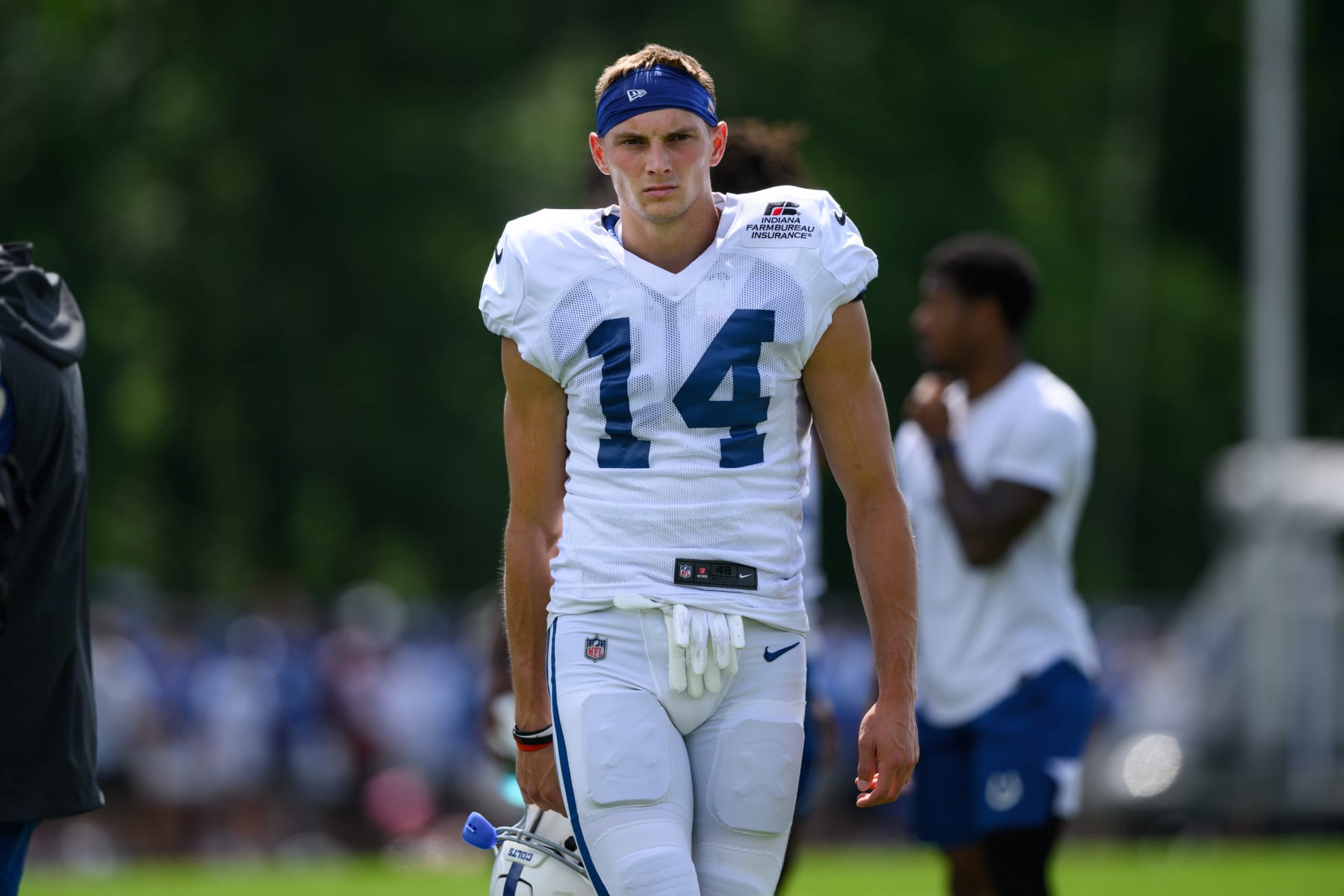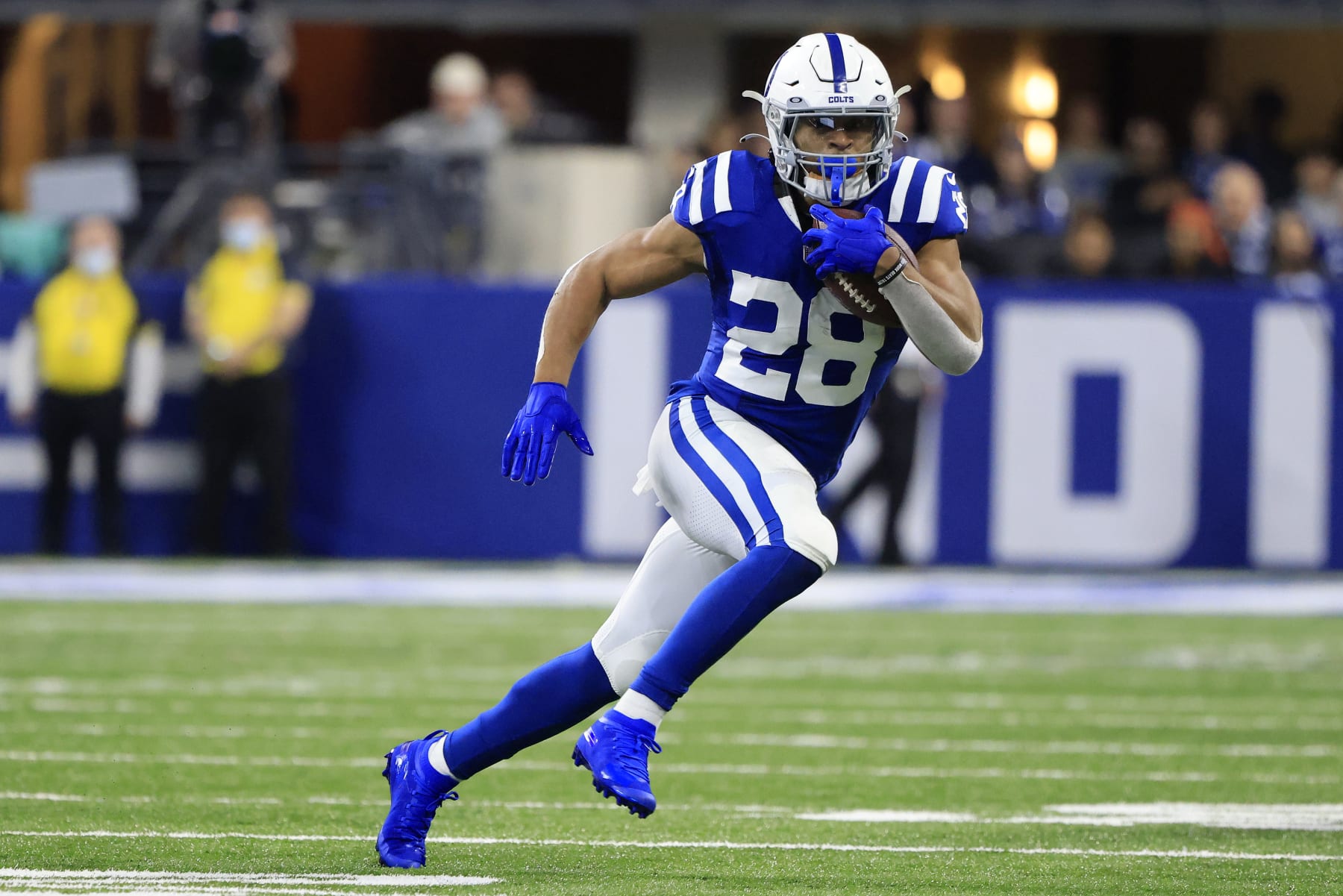Fantasy Football 2022: Mock Draft Strategy, Cheatsheet Entering Preseason Week 1
Fantasy Football 2022: Mock Draft Strategy, Cheatsheet Entering Preseason Week 1

The 2022 NFL preseason unofficially kicked off last Thursday with the Hall of Fame Game. The preseason proper will begin this Thursday, and the regular season won't be far behind.
For fantasy football enthusiasts, this means that fantasy-draft season has arrived. Those in season-long leagues will likely hold their drafts sometime after preseason Week 1 and the regular-season opener on September 8.
Between now and then, smart managers will be digging through the latest buzz, diving into draft rankings and checking preseason stat sheets. Preparation is the key to a strong draft, and mock drafts can be a valuable part of the process.
Simulating a draft—using a tool like FantasyPros' Mock Draft Simulator—can provide insight into how players are trending and help build the right draft strategy for you. Here, we'll run down some dos and don'ts that should help you get the most out of mock drafts as a preparation tool.
We'll also run down our latest top 50 rankings for point-per-reception (PPR) scoring formats.
Mock Draft Dos

Do Know Your Draft's Draft Settings
To get the most out of a mock draft, you'll want to mirror your upcoming real-world draft as much as possible.
Most mock draft programs will allow you to dictate scoring formats (PPR vs. standard), positional lineups and league size. This is easier if you're already in an established league and know the rules and formatting. If you're in a 12-team PPR league that uses 3 WR, 2 RB and 2 flex, you can set your mock draft to those specifications.
If you're planning on joining a one-off ESPN, Yahoo or other fantasy league, do a little scouting and figure out what sort of league you want to join.
You can also set your draft slot to its real-world counterpart, if that's known. If not, it's a good idea to run mock drafts at the top, middle and end of the order to get a feel for how things might unfold.
Do Create a Tier List and Run Multiple Simulations
While running one mock draft can provide some insight and some practice, running multiple simulations will be more valuable. Just because you land all of your favorite players the first time around, it doesn't mean it will happen a second or a third or in your actual draft.
Smart drafters know how to pivot when a player they want is no longer available—or when a positional run leaves inadequate value at a position of need.
It helps to spend a little time studying rankings and preparing a tier list, or a list of players you're willing to take in each round. Then, by running multiple mocks, you can get a feel for when to pivot to a different player or position.
If, for example, you have Tampa Bay Buccaneers receiver Mike Evans as a player you're unwilling to take before Round 3, don't take him in the second round just because he's the top-ranked WR available and you don't have a receiver yet. If this scenario plays out consistently? Consider tweaking your tier list ahead of your real-world draft.
Is a player like Los Angeles Rams receiver Cooper Kupp or Tennessee Titans running back Derrick Henry on your must-have list? By running multiple mocks, you can get an idea of how consistently you can land him in your draft slot and how the rest of your lineup falls when forcing the pick.
Do Try Different Strategies
Many longtime fantasy managers have tried-and-true strategies that they follow year after year. Some may always go with two running backs to start a draft. Others will always try to get 2 WRs within the first three rounds in PPR formats. Maybe you refuse to take a quarterback before the fifth round.
The reality, though, is that draft values change from year-to-year, and what worked in 2020 might not yield the same winning quad in 2022.
It's always a good idea to test out different draft strategies when running multiple simulations to craft the best plan for your actual draft.
Does forcing two RB picks at the top of the draft regularly leave you weak at receiver or tight end? Try a different approach and see how your lineup comes together.
Ideally, you'll come up with a couple of different strategies that produce the desired results. Then, you'll have multiple paths to take during your real-world draft and an established game plan for when pivoting becomes necessary.
Mock Draft Don'ts

Don't Be Afraid to Take Risks
The beauty of mock drafts is that you're not stuck with the results for the entire season (or at all). This is a perfect time to experiment and take a few risks.
If, for example, you're convinced that Davante Adams is still a top-three WR now that he's with the Las Vegas Raiders, take him in the first round and see how the rest of your lineup shakes out. If you're consistently happy with the results, then perhaps you'll be comfortable doing the same in the real world.
This can work for evaluating sleeper picks, too.
Say you're sold on Indianapolis Colts rookie receiver Alec Pierce. You know that he's going to outperform his FantasyPros average draft position (ADP) of 175. Try taking him at 120 or 100 and see how the rest of your mock unfolds.
Try to find a sweet spot where you're repeatedly getting your desired sleeper without sacrificing value and filling needs on the back end. Now you have a personalized draft range.
Don't Completely Ignore Suggested Picks
Most mock programs work off of ADP. While this won't necessarily give you an accurate picture of how your real-world draft will unfold, it can provide a guideline.
Therefore, it's a good idea not to ignore suggested picks that pop up over the course of a mock draft. Paying attention to suggested picks can help put a player on your radar who wasn't previously there.
If, for example, you're regularly suggested to take Denver Broncos WR Courtland Sutton at the top of Round 4, there might be something to it. Even if you're not high on Sutton, it could be worth doing a little more research on his past production and projected role for 2022.
The same holds true if you're high on Sutton but are consistently suggested to take other players over him. It's a good idea to figure out why.
The NFL is a constantly evolving entity, and it can be difficult to keep up with all of the latest reports and information. By tracking ADPs and pick suggestions, you can find hints on when and where to do targeted research.
Don't Expect to Land the Same Lineup on Draft Day
It's important to remember that mock drafting is a tool that can provide hints, tips and guidelines. You aren't guaranteed to get the same lineup results in the real world.
There's a human element to fantasy drafting, and every league is going to be different. There will always be managers who want certain players more than you do, ones who are targeting the same sleepers you are, and those who will force positional picks when it doesn't make sense to you.
If you're getting the same top five targets consistently in your mocks, remember that you might not get any of them on draft day. This is why it's important to tier players, have a value-based strategy and always be prepared to pivot.
One of the worst things you can do on draft day is panic-pick a player you don't really want because you don't know where to turn. Avoiding the wrong players is just as important as finding the right ones.
Mocks can help you know who to target and who to avoid. More importantly, though, they can help give you the confidence needed to navigate any draft scenario.
PPR Top 50

1. Jonathan Taylor, RB, Indianapolis Colts
2. Christian McCaffrey, RB, Carolina Panthers
3. Dalvin Cook, RB, Minnesota Vikings
4. Austin Ekeler, RB, Los Angeles Chargers
5. Cooper Kupp, WR, Los Angeles Rams
6. Justin Jefferson, WR, Minnesota Vikings
7. Najee Harris, RB, Pittsburgh Steelers
8. Darrick Henry, RB, Tennessee Titans
9. Joe Mixon, RB, Cincinnati Bengals
10. Travis Kelce, TE, Kansas City Chiefs
11. Ja'Marr Chase, WR, Cincinnati Bengals
12. Davante Adams, WR, Las Vegas Raiders
13. Stefon Diggs, WR, Buffalo Bills
14. D'Andre Swift, RB, Detroit Lions
15. Aaron Jones, RB, Green Bay Packers
16. CeeDee Lamb, WR, Dallas Cowboys
17. Saquon Barkley, RB, New York Giants
18. Mike Evans, WR, Tampa Bay Buccaneers
19. Leonard Fournette, RB, Tampa Bay Buccaneers
20. Tyreek Hill, WR, Miami Dolphins
21. Alvin Kamara, RB, New Orleans Saints
22. Mark Andrews, TE, Baltimore Ravens
23. Deebo Samuel, WR, San Francisco 49ers
24. Keenan Allen, WR, Los Angeles Chargers
25. Nick Chubb, RB, Cleveland Browns
26. Javonte Williams, RB, Denver Broncos
27. Michael Pittman Jr., WR, Indianapolis Colts
28. Tee Higgins, WR, Cincinnati Bengals
29. D.J. Moore, WR, Carolina Panthers
30. A.J. Brown, WR, Philadelphia Eagles
31. James Connor, RB, Arizona Cardinals
32. Kyle Pitts, TE, Atlanta Falcons
33. Josh Allen, QB, Buffalo Bills
34. Ezekiel Elliott, RB, Dallas Cowboys
35. Diontae Johnson, WR, Pittsburgh Steelers
36. Travis Etienne Jr., RB, Jacksonville Jaguars
37. David Montgomery, RB, Chicago Bears
38. Terry McLaurin, WR, Washington Commanders
39. Jaylen Waddle, WR, Miami Dolphins
40. Brandin Cooks, WR, Houston Texans
41. Mike Williams, WR, Los Angeles Chargers
42. Courtland Sutton, WR, Denver Broncos
43. Lamar Jackson, QB, Baltimore Ravens
44. George Kittle, TE, San Francisco 49ers
45. Antonio Gibson, RB, Washington Commanders
46. Justin Herbert, QB, Los Angeles Chargers
47. DK Metcalf, WR, Seattle Seahawks
48. Patrick Mahomes, QB, Kansas City Chiefs
49. Allen Robinson II, WR, Los Angeles Rams
50. Darren Waller, TE, Las Vegas Raiders
